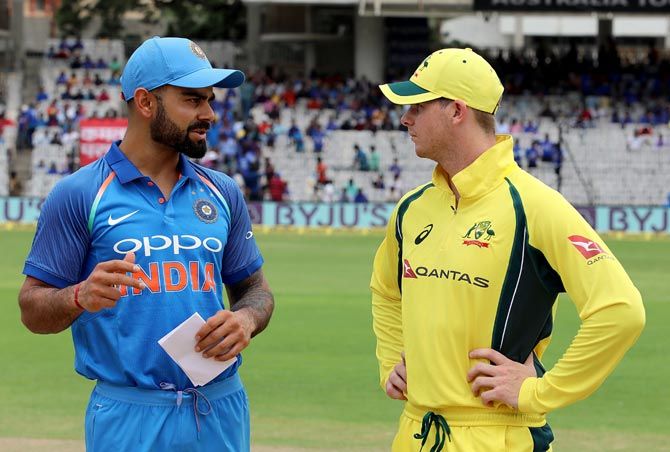'I don't think you will see any country playing more than three one-day matches in a series in the future.'

Cricket Australia Chief Executive James Sutherland belies that the ongoing series against India could be one of the last five-match rubbers in the One-Day International format as efforts are on to introduce a global league.
According to a report in cricket.com.au, Sutherland has confirmed that if the proposed introduction of a 13-team ODI league goes ahead, then future bilateral ODI series is unlikely to exceed three matches.
However, individual boards are free to chalk out their own bilateral programmes.
"I don't think you will see any country playing more than three one-day matches in a series in the future," Sutherland said.
"They might intersperse them with some Twenty20 matches as well, but I don't think you'll see many five-match one-day series … if the plans at ICC level unfold for a Test championship and a one-day league."
The proposed ODI league could have six home and six away games.
"The contemplation around one-day cricket in the future is that each country hosts six one-day matches and plays six away matches as part of that league, so that's likely going to be the limits of it."
Sutherland also feels that a World Test Championship is the need of the hour to add more context to a series like the one played between Australia and Bangladesh recently.
"If you think about the current series, we have just completed in Bangladesh, that had real context for the two countries involved but that context would be even more significant and highly elevated if there were points at stake as part of a Test championship," he said.
"What amplifies through that is third-party interest, so other countries, by extension, would have an interest in that series because it had a bearing on where others fitted on the ladder.
"I think that's a real positive because there are consequences that come with winning and losing that are far greater than just the bilateral series result as it stands," Sutherland said.











